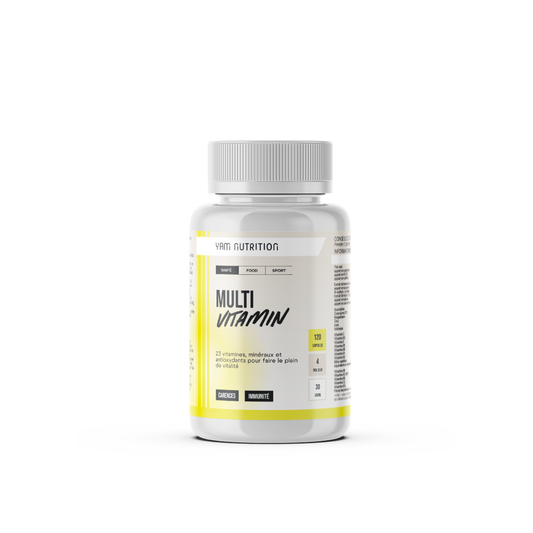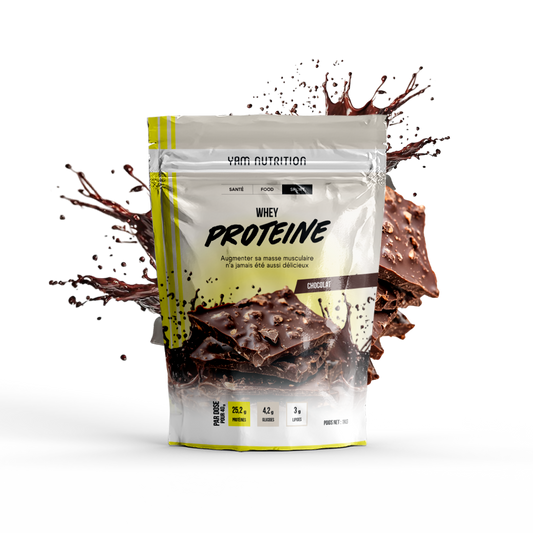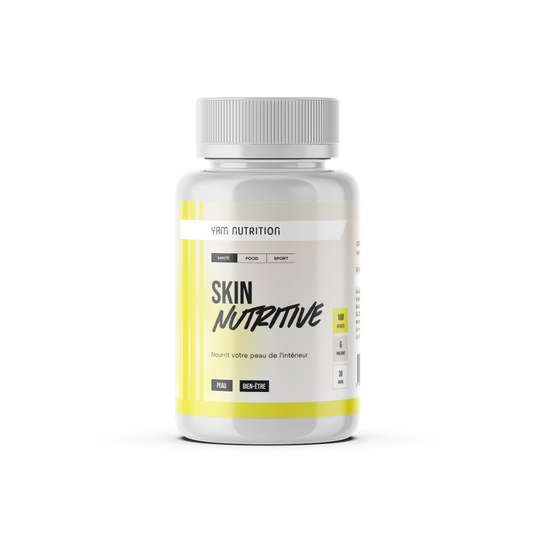Glycine, a primordial and essential amino acid…

Sommaire
- Glycine, a non-essential but essential amino acid...
- This amino acid has properties that are particularly useful for the most serious athletes.
- Glycine supplementation may affect health and longevity at various levels.
- Glycine increases muscle mass and strengthens bones
- Leucine and Glycine are among the most interesting amino acids for athletes and sedentary people.
- An amino acid that could improve sleep onset and sleep quality
Glycine, the simplest amino acid!
As you already know, Glycine is the simplest amino acid in molecular terms. This does not mean, however, that we could do without it. In fact, it is quite the opposite. Glycine is also one of the amino acids whose supplementation is of the most interest, perhaps more than BCAAs, probably as much as Leucine, we will come back to this…
OMNICOL™ Patented Collagen Hydrolysate A complex of 23 vitamins, minerals and antioxidants to boost your vitality Building muscle mass has never been so delicious
Collagen Type 2 Powder
Sale price
49,90 €
Multivitamin
Sale price
29,90 €
Whey Protein
Sale price
From 37,90 €
On a biomolecular level, Glycine is the simplest amino acid (amine function + acid function). But this does not mean that we can do without it. On the contrary, it is quite the opposite. Glycine is mainly one of the amino acids which is of the most interest to take as a supplement. It is perhaps just as important as BCAAs or Leucine , we will talk about it again…
Glycine, a non-essential but essential amino acid...
Due to its molecular simplicity, Glycine can be perfectly synthesized by the body. Therefore, does a supplement with this amino acid make sense for athletes? Note that this is exactly what was said about the Glutamine ... Metabolisms are different, however, Glycine is an amino acid just as specific as Glutamine, that is not the question. Still, Glycine has particularly interesting properties for athletes. It simply turns out that the body is not always able to produce all the amino acids it needs, especially when intense sporting activities are practiced. But like any energy substrate, the pool of amino acids decreases sharply with the intensity of physical training. Finally, it may be necessary to put this idea of essential and non-essential amino acids into perspective, especially for active people. As for Glycine, experience and multiple clinical experiments have proven the interest of its supplementation.
This amino acid has properties that are particularly useful for the most serious athletes.
Glycine is an amino acid that has several functions, including enabling the synthesis of creatine with two other amino acids. This is probably the most well-known function of this amino acid among bodybuilders. However, you are probably aware that it is essential for the synthesis of Collagen , a structural protein in the human body that is particularly abundant and valuable. Collagen has a specific role, that of maintaining the mechanical structure of the human body. Present everywhere, collagen is found in bones, cartilage, skin, tendons and even muscles (type III collagen) . However, the interest of this amino acid does not stop at the synthesis of creatine or collagen, even if these two functions are essential to our body.
Glycine supplementation may affect health and longevity at various levels.
Amino acids and peptides…
Most scientific studies agree that Glycine would have particularly beneficial health benefits, whether you are sedentary or athletic. And as we said above, there is no indication that the body synthesizes enough Glycine, the opposite would certainly be closer to reality. Glycine is also known to reduce the level of homocysteine , a metabolite of cysteine suspected of increasing the risks of pulmonary embolism, heart disease, high blood pressure or venous thrombosis. As you may know, a high level of homocysteine is generated by the excessive presence of L-Methionine. Thus, taking Glycine after a meal rich in methionine, such as excessive consumption of red meat, would reduce the rise in blood homocysteine.
Experiments conducted on laboratory rats – although these studies cannot be strictly interpreted in humans – have highlighted the effect of Glycine on longevity, from 8 to 12% depending on the scientific studies carried out. This effect on longevity has also been attributed to the reduction in blood glucose levels and insulin secretion. Effects on homocysteine regulation have also been mentioned.
Glycine increases muscle mass and strengthens bones
Clinical research has highlighted the benefits of Glycine in strengthening bones and muscle mass. Indirectly, Glycine is essential for the endogenous synthesis of creatine. Adequate intake of Glycine allows for equally adequate synthesis of creatine and phosphocreatine by the body. But Glycine also plays an essential role in strengthening connective tissues, themselves made up of elastic fibers and collagen that bind different types of organic tissues and the organs themselves. In this way, Glycine helps accelerate post-exercise recovery, both for its structural role ( connective tissues ) and energy ( phosphocreatine synthesis ).
Leucine and Glycine are among the most interesting amino acids for athletes and sedentary people.
In addition, recent scientific studies have highlighted the role of Glycine – and Leucine – on muscle growth as the subjects began to age. Experience shows that Glycine exerts an even more positive influence on the muscle gain that the subject is old. This would be indirect proof of the essential role of collagen and Glycine at the structural level of the human body. This is also what has been observed on the health of the skin because the synthesis of collagen decreases with the years. The skin then gradually loses its elasticity and firmness. Again, a controlled clinical intake of Glycine has proven that this amino acid encourages the synthesis of collagen, improving the suppleness of the dermis and the epidermis. Again, this clearly shows the relationship between the need to synthesize enough collagen and the health of the skin, in connection with the essential nutritional contributions of this amino acid.
An amino acid that could improve sleep onset and sleep quality
Glycine, an amino acid that is said to have a positive effect on sleep... [/caption]
Indeed, it is an amino acid that would play a positive role in the speed of falling asleep and the quality of sleep. Here too, researchers have highlighted the influence of Glycine on sleep and physical recovery after a night of sleep. People with sleep disorders took a complement of 3 grams of the amino acid before going to bed ( placebo-controlled experiment ). The results were positive on the subjects' mood, recovery, fatigue and alertness.
Clearly, the health benefits of Glycine are numerous – and incidentally, collagen – to the point that we can only recommend supplementing. If you are an athlete, this amino acid will help you recover better from your workouts . If you are sedentary, this amino acid will also provide you with significant health benefits.
Eric MALLET
Spécialiste en Nutrition Sportive












